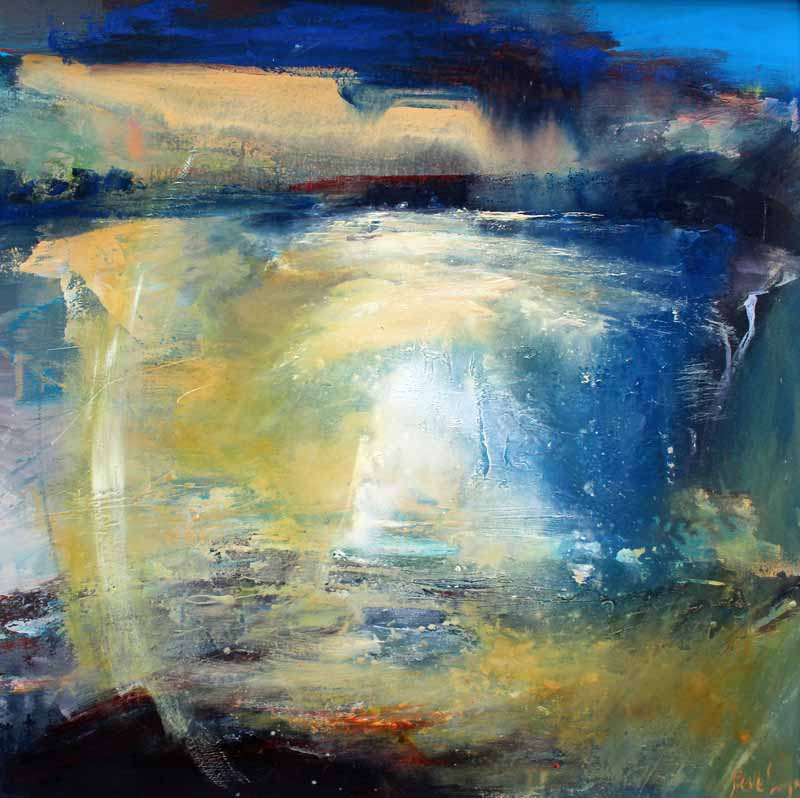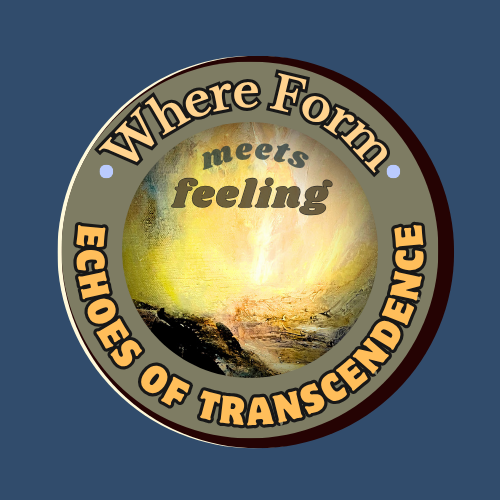
One of The Biggest Problems Faced by Creative People - Broadcasting.
Share
 Painting, presenting artwork, playing music, recording, mixing, mastering, writing poetry, other forms of writing - it's all a breeze to me, and others like me no doubt. But one of the biggest problems creative people face in the contemporary world is broadcasting - i.e. the dissemination of our creativity. In plain English - telling the world, other people, about what we do. Showing them stuff, letting them hear or read stuff.
Painting, presenting artwork, playing music, recording, mixing, mastering, writing poetry, other forms of writing - it's all a breeze to me, and others like me no doubt. But one of the biggest problems creative people face in the contemporary world is broadcasting - i.e. the dissemination of our creativity. In plain English - telling the world, other people, about what we do. Showing them stuff, letting them hear or read stuff.
It's not like in the old days when you had a handful of galleries promoting your work, a record company who offered you a deal, or a publisher for your books. These channels still exist, but the creative arena is now so diverse that it's like running on empty all the time, to expect to find and connect with just the right environment for what you do. The name of the game now is to create your own channels. Period.
 But only part of the problem lies with how to go about it - what methods to use, what strategies, the most effective platforms, etc. I've been both immersed in and excited about this for the past two decades. But I'm now discovering that a far more debilitating problem lies deeper. It has to do with self-perception. The way I see it is this: there are some creative people who are blessed with a sense of self that allows them to have a trumpet, learn to play it, then blow their heart out for all it's worth - understanding that people will either love it or hate it. Either way is okay. But for themselves they know what they do is good. It might not be the best trumpet blowing, but it's still great. In fact, it might even be the greatest!
But only part of the problem lies with how to go about it - what methods to use, what strategies, the most effective platforms, etc. I've been both immersed in and excited about this for the past two decades. But I'm now discovering that a far more debilitating problem lies deeper. It has to do with self-perception. The way I see it is this: there are some creative people who are blessed with a sense of self that allows them to have a trumpet, learn to play it, then blow their heart out for all it's worth - understanding that people will either love it or hate it. Either way is okay. But for themselves they know what they do is good. It might not be the best trumpet blowing, but it's still great. In fact, it might even be the greatest!
Unfortunately, this approach to art doesn't come naturally to all creatives. For many of us, maybe the majority, the idea that our stuff is good, or possibly even great, seems so foreign as to be almost unthinkable. It might take ten people telling me how much they appreciate my work, for me to even begin to think it's okay and hold that idea for a week or two. The reason for this, as far as I can see, is that for ongoing artistic development to have chance to blossom, there has to be a strong element of self-criticism with regard to the work. For myself, there needs to be a distancing, in order for me to see/hear something as though I hadn't created it. After a year or two I'm generally okay with this. Maybe much less, depending on how much creative water has gone under the bridge.
 As an example, I was at a hotel bar with a musician friend in the late 90s. I was really enjoying the music playing on the hotel sound-system, and said to my mate "This sounds great - who is it?". His sardonic reply was "It's us y'twat". Obviously I'd had enough distancing to no longer recognise the piece - and therefore to allow myself to listen without my critical ear. It was therefore just pure enjoyment. I think this is very important to understand, for anyone on the path of artistic excellence. When anyone starts out with that flood of ecstatic enthusiasm, there is a stage where you think/believe everything you do is the best thing since the M5 bypassing Bridgewater. Then there's a stage where you think everyone else does it better than you - so why bother? And finally, you seem to settle into an honest sensitivity that sees the value, but also allows for ongoing improvement and exploration through self-criticism. This is where I'm at now. Whether there's another stage where I am totally convinced that what I do is extraordinary - well this remains to be seen. I'm always open to possibilities.
As an example, I was at a hotel bar with a musician friend in the late 90s. I was really enjoying the music playing on the hotel sound-system, and said to my mate "This sounds great - who is it?". His sardonic reply was "It's us y'twat". Obviously I'd had enough distancing to no longer recognise the piece - and therefore to allow myself to listen without my critical ear. It was therefore just pure enjoyment. I think this is very important to understand, for anyone on the path of artistic excellence. When anyone starts out with that flood of ecstatic enthusiasm, there is a stage where you think/believe everything you do is the best thing since the M5 bypassing Bridgewater. Then there's a stage where you think everyone else does it better than you - so why bother? And finally, you seem to settle into an honest sensitivity that sees the value, but also allows for ongoing improvement and exploration through self-criticism. This is where I'm at now. Whether there's another stage where I am totally convinced that what I do is extraordinary - well this remains to be seen. I'm always open to possibilities.
Go to Importance of Art Blog . . .
